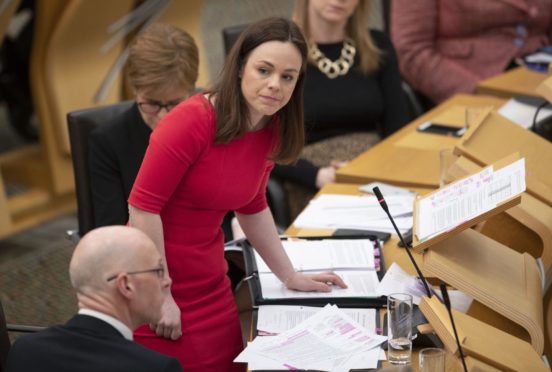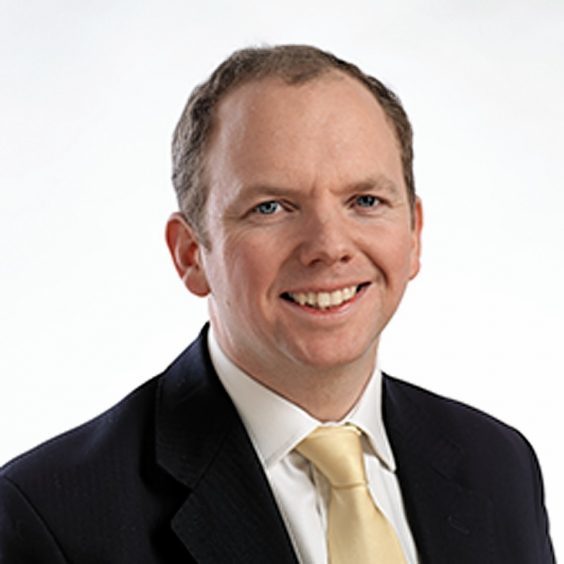Scottish businesses are to be hit by hundreds of millions extra in rates over the next few years, it has emerged.
Finance Secretary Kate Forbes confirmed the £670 million rise as MSPs voted for income tax rates that will result in higher earners continuing to pay more than elsewhere in the UK.
The Scottish Conservatives claimed the rising business rates bill was the latest indication that the SNP ran an “anti-business” government.
The increase in income to be generated by non-domestic rates was outlined in a document submitted to Holyrood’s Finance Committee by Ms Forbes.
The document confirmed income would rise from £2.75bn this year to £3.42bn by 2023/24, an increase of almost 25%.
The extra cash demanded from businesses would result from business rates revaluations.
Ms Forbes forecast that business rates income would increase from £2.749bn in 2020/21 to £3.012bn in 2021/22.
Thereafter it would increase from £3.345bn n 2022/23 reaching £3.423bn in 2023/24.
Since coming to power in 2007, the SNP has made it perfectly clear it is an anti-business government”
Tory Highlands MSP Donald Cameron
Tory finance spokesman Donald Cameron said: “Clearly the SNP government thinks it can balance its own books on the backs of hardworking businesses.
“Firms big, medium and small are already paying through the nose when it comes to various taxes and rates. This document shows the nationalists want to shake them down for even more cash.
“It’s no wonder the business community feels neglected by the SNP government. Since coming to power in 2007, the SNP has made it perfectly clear it is an anti-business government.”
Mr Cameron added: “This raid will only drive away growth and help Scotland’s closest competitors.”
Over the years north-east businesses have been angered by the high business rates paid in the area. In the past, they have complained rates revaluations have disproportionately affected north-east businesses because they have failed to reflect the oil and gas downturn and its impact.
MSPs back Scottish Government’s income tax plans
The document emerged as MSPs voted narrowly to back the Scottish Government’s income tax plans, which mean those earning £50,000 pay around £1,500 more per year than their counterparts south of the border.
MSPs voted by 58 to 50 with five abstentions for the plans, which have to be supported by a parliamentary majority for Ms Forbes’s budget to be approved.
This year Ms Forbes proposed freezing the two highest tax brackets for 2020-21, while the threshold for the basic and intermediate rate of tax will rise by 0.2% and 0.9% respectively.
According to the Scottish Parliament Information Centre (Spice), the increases in some thresholds will have the effect of bringing the amount paid in the bottom three brackets up by inflation.
Analysis by the Scottish Fiscal Commission found the rates will bring in a total of £12 billion in revenue to the public purse next year.
Mr Cameron said: “While many hard-working people across Scotland will no doubt be relieved that the tax-hiking, levy-raising tendencies of this Government have been silenced for this year at least, the freezing of the higher and top rate thresholds will mean that … more people will be sucked into paying more tax.”
Public Finance Minister Ben Macpherson said: “Our fairer and more progressive tax policy means that 56% of Scottish taxpayers will pay less tax than they would if they lived elsewhere in the UK in 2020-21.
“We are proposing to raise the starter and intermediate rate bands by inflation and freeze the higher and top rate thresholds.”
On the business rates document, a Scottish Government spokeswoman said: “This analysis is wholly misleading and fails to understand the operation of the Non-Domestic Rates system.
“The forecast growth in income reflects the impact of the decision to devolve empty property relief to councils, measures in the Non-Domestic Rates (Scotland) Bill to tackle tax avoidance, growth in the tax base and the cyclical impact of the appeals cycle. It will have no real impact on the vast majority of businesses, who will see their rates bill increase by no more than the normal annual inflationary increase.”
The spokeswoman added: “Scotland has the most competitive non-domestic rates regime in the UK, ensuring that over 95 per cent of properties pay a lower poundage than they would in other parts of the UK.”

